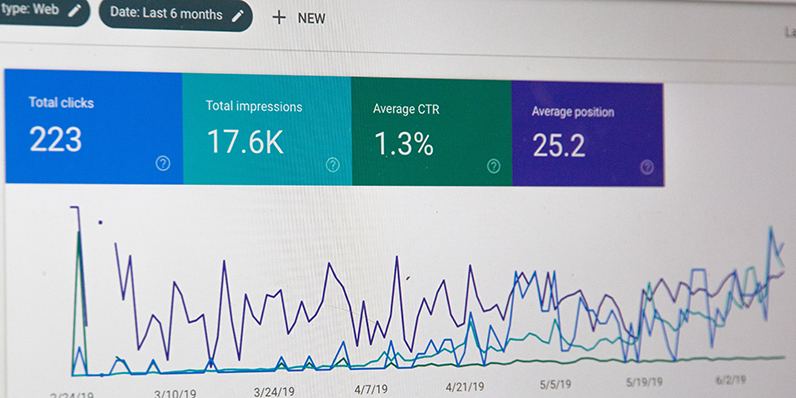
Keyword Basics to Jumpstart your SEO Strategy
Search engine optimization (SEO) is a bit of a mystery to most people not only because search engines like Google keep their algorithms a secret, but because it is both incredibly simple yet wildly complicated at the same time. It reminds me of how some professional poker players describe how Texas Hold ‘Em, “takes a moment to learn but a lifetime to master”.
In its simplest form the typical user search process can be best described by the restaurant/food example.
Let's say you're hungry. You go to google. You search for "Food Near Me." On the search engine results page (SERP) you see a map with 20 different pins and results that are all restaurants.
This doesn't help you at all.
You think. Then you realize that you don't want to leave your house.
"Food Delivery Near Me."
10 Results.
You think a little more. Your coworker showed you, over zoom, some pizza he got for lunch.
"Deep Dish Pizza Delivery Near Me."
2 Results.
The tyranny of choice is almost gone.
Your mouth is now watering. You want pizza as soon as you can get it.
But you also realize that you don't actually want deep dish pizza. And your wife is asking for a thin crust Hawaiian pizza, too.
"Pizza Delivery Near Me."
4 Results.
You look for the place nearest to you.
You open up the website, look at the menu, and finally place your order.
It's a journey we have all been on at some point- but it's a journey that illustrates one of the biggest balancing acts from the perspective of the business being search for when it comes to Search Engine Optimization - how do we get our websites in front of the eyes of our users when we're competing against other sites and services just like us? If we use just one or two words when we search - this is called "short tail keywords" - we may be one of the pins that immediately gets glossed over. If we use a “long tail keyword” which are longer and more specific phrases we risk being too specific and our result might not even show up - and that's just assuming that someone will take the time to search that specifically. We want to find a place somewhere in the middle or the “sweet spot”.
How do we approach the sweet spot?
- Knowing your users and your audience sets us up for success.
- If you can learn what your users and audiences want and how they normally get to you, you have a starting point for what keywords you might want to tap into.
- You generally want to know how they get there, what keywords they used when they first found you, and some other words that come to mind when they think of your website, products, or services.
- With this you can create what is often called a "seed list" of keywords. Let your mind run with this. It's always easier to get rid of keywords that don't help than it is to try to add more, later. Take this list and now...
- ...test and research your keywords.
- When you search for your own website, as if you were a consumer, what do you see? Are you able to find your website? Is it in the top 10 results? Top 5? First? And what about the SERP?
- If your SERP has a lot of content at the top that's already pushing down pages, that could easily hinder potential engagement to your website. Keep trying different words to see where you end up placing on the results page. You want to find words that get you in the top 10 or 5. Sometimes, unless you're Amazon or the New York Times, if you show up first in a search, you may be using overly specific keywords that your users might not ever try.
- Additionally, you can use tools like Google Ads and wordtracker.com to see how competitive certain keywords and phrases are.
- Figuring out what keywords get you to the top 10 is a good start for...
- ...putting those keywords into action.
- Take those keywords and put them into the metadata of your website. Summaries, Titles, Headers - you want them there. Don't overdo it, though, or search engines might think there's something odd going on - but don't be afraid to get those words into your site, your content, and your code.
- Additionally, consider paying for some ads - if you've found a sweet spot with your keywords you won't have to break the bank trying to advertise using the broadest, short-tail keywords to get to the top of the results page. But you'll also see quickly that paying for a cheap Ad plan oftentimes means that no one is looking for those keywords anyway.
And then? We wait, and tweak... and wait some more to see whether or not the changes we made will pay off when it comes to users finding our website through search engines and possibly ads. But this is part of the process of iterating upon what we've learned about our users, and then, about our keywords.
There is so much more to making your SEO a success, but leveraging keywords is a great place to begin your journey through the SEO process and it is the key to help your site stand out in the eyes of search engines. For more help with SEO or your website, feel free to contact Vanguard Technology today!